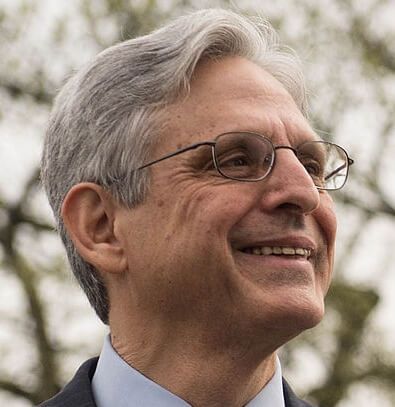(This story has been updated with comment from NORML.)
President Joe Biden’s pick for U.S. attorney general, Merrick Garland, was confirmed easily by a 70-30 vote in the Senate on Wednesday, a development that was cautiously hailed by some marijuana advocacy groups.
The belief is that Garland’s confirmation could potentially usher in a more marijuana-friendly Department of Justice than existed in the Trump administration.
Garland doesn’t appear to have as negative a view of the industry as his predecessors, though questions still remain about how the Biden administration will approach marijuana.
It’s unclear, for example, whether Garland might issue an updated version of the Cole Memo, which was a guiding DOJ document for years under the Obama administration.
The memo laid out certain standards for states that legalized recreational cannabis, which ensured that the DOJ wouldn’t interfere with adult-use market launches or prosecute marijuana industry insiders.
That lack of clarity from Garland is perhaps why there wasn’t an immediate outpouring of statements from industry trade groups celebrating his confirmation.
Morgan Fox, a spokesman for the Washington DC-based National Cannabis Industry Association, wrote in an email to Marijuana Business Daily that Garland’s confirmation should be “heartening” to all marijuana stakeholders.
Fox noted that while Garland “did not explicitly state a position on efforts to make cannabis legal,” the one-time federal judge’s other marijuana positions “give me a lot of hope.”
“As far as cannabis goes, I think we can expect to see a continuation of the policy of non-interference,” Fox wrote, “and I wouldn’t be terribly surprised to see an official reinstatement of the Cole Memo or something similar in the not-too-distant future.”
The Drug Policy Alliance issued a statement congratulating Garland on his new post.
Though the group said it was “encouraged” that Garland is supportive of states’ rights to legalize and regulate marijuana, it also hedged a bit and suggested he could go further on criminal-justice reforms.
Erik Altieri, executive director of Washington DC-based NORML, also praised Garland’s positions.
Marijuana advocates should be “optimistic,” Altieri said, but he added, “Such a ‘hands off’ policy is little more than a short-term Band-Aid.”
“The long-term solution is for Congress to deschedule cannabis – thereby repealing the failed federal policy of marijuana prohibition and eliminating the existing state/federal conflict,” Altieri said.
The three advocacy groups are basing their responses on Garland’s confirmation hearings, when he repeatedly made clear his intention to relax DOJ attitudes toward the enforcement of marijuana prohibition, particularly regarding communities of color.
“Here’s a nonviolent crime, with respect to usage, that does not require us to incarcerate people, that we’re incarcerating at different rates, significantly different rates, of different communities. And that is wrong,” Garland said in response to questions posed by Sen. Cory Booker, a New Jersey Democrat and vocal proponent of federal MJ reform.
Garland also said during his hearings that he doesn’t believe prosecuting marijuana-related offenses in states that have legalized MJ is a “useful use of limited resources” by the DOJ.
But Garland did make clear he will continue to pursue some types of enforcement to “be sure there are no end-runs around the state laws that criminal enterprises are doing.”
Such stances put Garland in a very different category than Trump’s two attorneys general, Jeff Sessions and William Barr.
Sessions rescinded multiple DOJ memos in 2018 that had long governed the agency’s approach to legal marijuana businesses and once proclaimed that “Good people don’t smoke marijuana.”
Barr, meanwhile, directly interfered with attempted marijuana industry mergers because he reportedly disliked the industry.
– John Schroyer
Medical Disclaimer:
The information provided in these blog posts is intended for general informational and educational purposes only. It is not a substitute for professional medical advice, diagnosis, or treatment. Always seek the advice of your physician or other qualified healthcare provider with any questions you may have regarding a medical condition. The use of any information provided in these blog posts is solely at your own risk. The authors and the website do not recommend or endorse any specific products, treatments, or procedures mentioned. Reliance on any information in these blog posts is solely at your own discretion.






